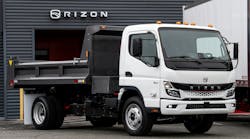The American Trucking Assns. (ATA) called for the introduction of several environmental initiatives yesterday before the Subcommittee on Highways and Transit of the House Transportation and Infrastructure Committee, which the Owner-Operator Independent Drivers Association (OOIDA) countered as being “irresponsible and ridiculous.”
According to Tommy Hodges, ATA first vice chairman and chairman of Titan Transfer, Inc., ATA believes that Congress should enact a national 65 mph speed limit and govern truck speeds at 65 mph or slower; increase funding for the Environmental Protection Agency’s SmartWay program; support national fuel economy standards for medium- and heavy-duty trucks; implement financial incentives to expedite the introduction of idling reduction equipment; invest in infrastructure improvements to reduce bottlenecks; fund research and development in new technologies, and promote the use of more productive truck combinations.
ATA said that supporting all of these environmental initiatives would reduce fuel consumption by a total of 86 billion gallons and reduce the carbon footprint of all vehicles by nearly a billion tons over the next 10 years.
The American Trucking Assns. (ATA) called for the introduction of several environmental initiatives yesterday before the Subcommittee on Highways and Transit of the House Transportation and Infrastructure Committee, which the Owner-Operator Independent Drivers Association (OOIDA) countered as being “irresponsible and ridiculous.”
According to Tommy Hodges, ATA first vice chairman and chairman of Titan Transfer, Inc., ATA believes that Congress should enact a national 65 mph speed limit and govern truck speeds at 65 mph or slower; increase funding for the Environmental Protection Agency’s SmartWay program; support national fuel economy standards for medium- and heavy-duty trucks; implement financial incentives to expedite the introduction of idling reduction equipment; invest in infrastructure improvements to reduce bottlenecks; fund research and development in new technologies, and promote the use of more productive truck combinations.
ATA said that supporting all of these environmental initiatives would reduce fuel consumption by a total of 86 billion gallons and reduce the carbon footprint of all vehicles by nearly a billion tons over the next 10 years.
“It is in our best business interest to reduce our energy consumption, improve our profitability, and reduce our levels of emissions and greenhouse gases,” Hodges said. “Our industry is proud of its environmental record in reducing emissions and transitioning to clean fuels.”
However, OOIDA said that the recommendations are meant to eliminate competition under the guise of environmental sustainability, contending that effective environmental solutions should begin with addressing inefficiencies in the supply chain, such as empty miles and time spent waiting to be loaded or unloaded.
“Upping truck weights and mandating speed limiters in the name of sustainability is irresponsible and ridiculous,” said OOIDA executive vp Todd Spencer. “Those things have nothing to do with making trucking more ‘green’ and everything to do with adding more ‘green’ to the pockets of large corporations.
“We support efforts to clean up our environment, but not at the expense of highway safety or crippling competition,” Spencer continued. “Those factors more than offset any theoretical productivity or environmental gains. The air isn’t made cleaner by fouling it with the smoke of powerful economic interests,” he added.


